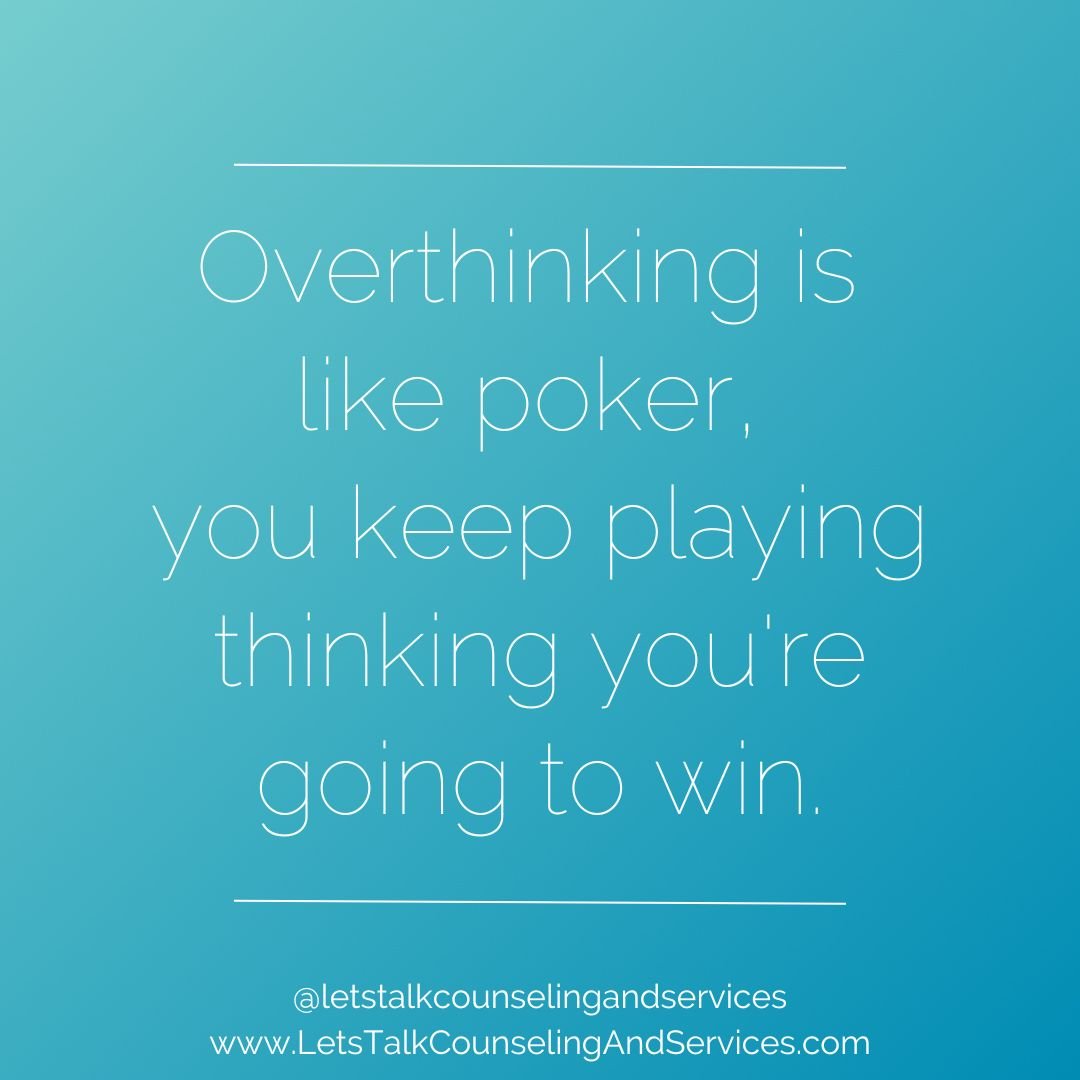Going Down Rabbit Holes: 3 Types of Overthinking
Overthinking is how most people describe the experience of noticing that their mind is just going in circles, playing and replaying interactions, coming up with possibilities and second guessing them a thousand times. From tiny feelings to big situations, the mind can always find something to chew on. One of the most maddening parts of overthinking things is that it never really feels like you’re “done.”
If you’re looking to learn how to curb your overthinking habit, we offer cognitive behavioral therapy in Florida and therapy in Orlando. We’d be glad to teach you how to get your overthinking under control. Our cbt counselors in Orlando are skilled in teaching cognitive coping skills and can help guide you through how to put these steps into practice in your own life. Call today or request a free consultation to get started.
In this article we’ll be discussing 3 different types of over-thinking. Figuring out what type of thoughts you’re overthinking can point toward the specific techniques to help you begin to unhook from this mental habit.
3 Types of Overthinking
Here are the three main types of overthinking that we see all the time. There are other reasons for overthinking, obviously, but these are the ones we see the most often.
Perfectionism Overthinking - the type that comes from striving for perfection in some or all areas of your life.
Anxious Overthinking - the type that comes from trouble with uncertainty, wanting to feel more sure about things
Avoidant Overthinking - the type that keeps you busy thinking instead of feeling your feelings.
Take a minute to think (ha!) about any patterns you notice when you’re caught up in a thinking spiral. Here’s how to spot these three types of overthinking in action.
Perfectionism Overthinking
If you struggle with perfectionism, this can have a big impact on your thinking habits. This type of overthinking is all about constant improvement, mistakes, and perceived flaws. In addition to having trouble relaxing, you may notice the following patterns in your thinking:
Hyper-focusing on minor problems in your life, trying to figure out ways to slowly improve and perfect every nook and cranny of your life.
Getting caught up in and spending lots of time on minor details that won’t matter in the grand scheme of things.
Hashing and rehashing flaws or mistakes (real or imagined ones).
Replaying through tasks or interactions with people looking for any errors in something you may have said or done.
Anxious Overthinking
Some people really struggle with feelings of uncertainty. Uncertainty is the feeling you get when you’re about to start a new job and you’re not sure what it’s going to be like (new things or things you don’t do very often usually feel uncertain). It’s also the feeling you get when you think quitting your job is probably the right call, but you’re not 100% sure (we can often feel uncertain about our judgement of things). Uncertainty is also the feeling we all have about when or if something bad is ever going to happen to us. All of these situations can feel uncomfortable, but more so for some than others. This type of overthinking is all about answering “what if” questions. With anxious overthinking, you might notice the following patterns in your thoughts:
Playing through scary scenarios in your mind of how something might turn out badly… over and over
Planning and rehearsing for how you would respond to problems in an unending maze of “if this happens, then I’ll do that… but if that happens, then I’ll do this…” and so on feeling like you need a game plan for every possible bad outcome
A highlight reel of all the things that could happen, with an emphasis on thinking “I could never handle it if that happened!!"
Avoidant Overthinking
This type is the sneakiest. This type of overthinking is when your mind gets snagged on try to explain “why” something happened, instead of feeling your feelings about it. This is perhaps the most common type of overthinking we see with clients who have experienced trauma. If you deal with this type of overthinking, you may notice the following thinking habits:
Trying to figure out why someone might have done or said what they did… there must be a reason
Trying to figure out how you could have seen something coming, replaying the events or conversations that led up to something emotionally painful, trying to figure out the warning signs you missed
Blaming the experience or situation on someone, either yourself or someone else and looping back through angry blaming conversations in your mind
Coming up with rules about how you’re going to make sure this same situation never happens again
If you feel like you’ve been struggling with over-thinking, we can help. Call today or request a free consultation to learn more about how to get your overthinking under control . Our counselors in Orlando offer cognitive behavioral therapy in Florida, with a skills-focused approach to help clients stop overthinking everything.
We can help.
If you or someone you love is struggling with depression, please reach out. We offer depression treatment with CBT Therapists in Orlando and online throughout the state of Florida. Call today or send us your info and we’ll reach out for a free consultation to see if one of our therapists would be a good fit.

